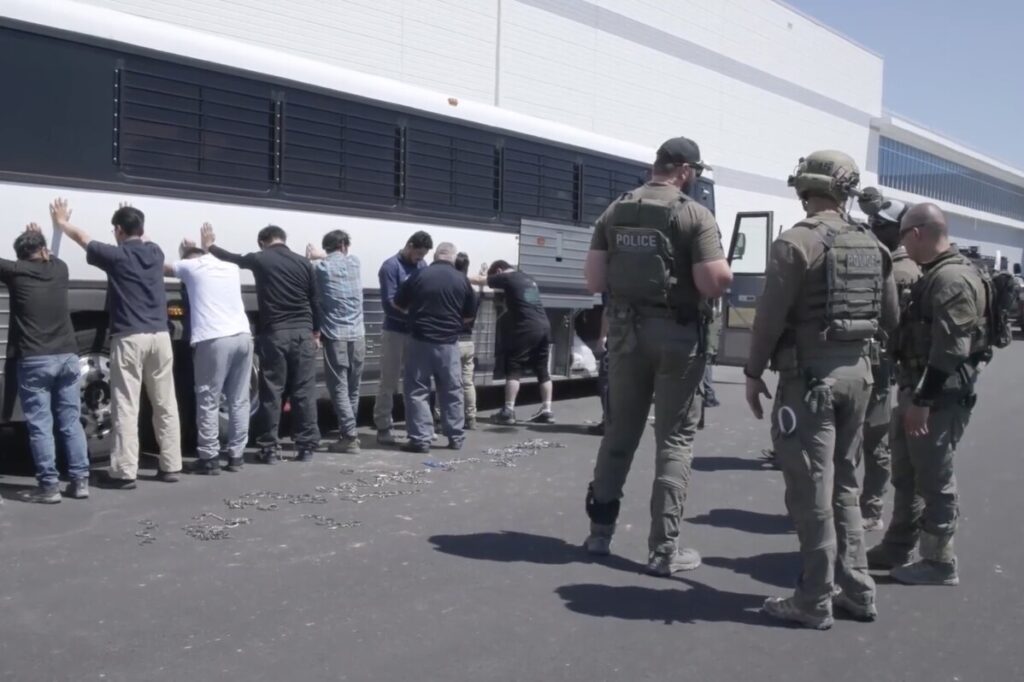Massive Georgia Raid Exposes Reckless Immigration Enforcement Harming U.S.-South Korea Alliance
Hundreds of detained South Korean workers in Georgia reveal dangerous cracks in America’s immigration policy and jeopardize vital economic partnerships.

The recent immigration raid at a Hyundai battery plant under construction in Georgia has ignited a firestorm of criticism, not just from South Korean leaders but also from American workers and industries that rely on skilled labor. Over 475 workers were detained, including more than 300 South Koreans—many shackled in a military-style operation by U.S. Immigration and Customs Enforcement. This harsh enforcement action under the Trump administration’s mass deportation agenda raises urgent questions about the cost of current immigration policies on America’s economic interests and international alliances.
How Long Will Washington Jeopardize Strategic Partnerships for Political Posturing?
South Korea’s Foreign Minister Cho Hyun swiftly departed for the U.S. to negotiate the release of their nationals, highlighting the diplomatic fallout this raid has caused between two key allies. The incident shocked many in Seoul, where lawmakers from all sides have condemned the raid as “unacceptable” and a “severe blow” to bilateral trust. Yet, Washington’s rigid immigration enforcement fails to account for the broader consequences: driving away essential foreign investment and sowing doubt about America’s commitment to its partners.
For decades, South Korean manufacturers have been vital to American industry, operating major plants that provide jobs to thousands of Americans while spurring innovation in critical sectors like electric vehicles and advanced battery production. However, constrictive visa policies—such as limited H-1B or H-2B options—force companies to resort to less secure arrangements like short-term visitor visas or electronic authorizations unsuitable for skilled work. When immigration raids forcibly remove these workers, they disrupt production timelines and inflate costs that inevitably burden American consumers and workers alike.
America First Means Securing Our Borders Without Sacrificing Economic Growth
The paradox is clear: while restoring manufacturing jobs is a stated priority of the current administration, contradictory immigration enforcement undermines this goal by restricting access to a skilled workforce needed to build these industries on U.S. soil. President Trump’s suggestion to “train U.S. citizens” is well-intentioned but unrealistic for specialized manufacturing roles that require years of expertise—roles foreign workers currently fill legally or quasi-legally due to visa bottlenecks.
This left-right divide over enforcement versus economic pragmatism must be reconciled with an America First approach that prioritizes national sovereignty without undercutting prosperity. The wholesale detention of allied foreign nationals without adequate notice or coordination risks alienating important partners like South Korea at a time when unified alliances are crucial against rising global threats.
Furthermore, this raid has exposed how disjointed bureaucracy can wage unilateral operations that damage long-term strategic interests without political accountability. One must ask: Is this aggressive raid truly protecting American workers—or merely satisfying an enforcement quota while jeopardizing future investments, job creation, and critical technology development?
As negotiations continue for repatriation of detained workers and visa reforms, it remains imperative for policymakers to adopt measured reforms that balance law enforcement with economic realism and alliance maintenance. How long will Washington allow such reckless actions to erode America’s leadership in manufacturing innovation—and trust among its closest allies?
